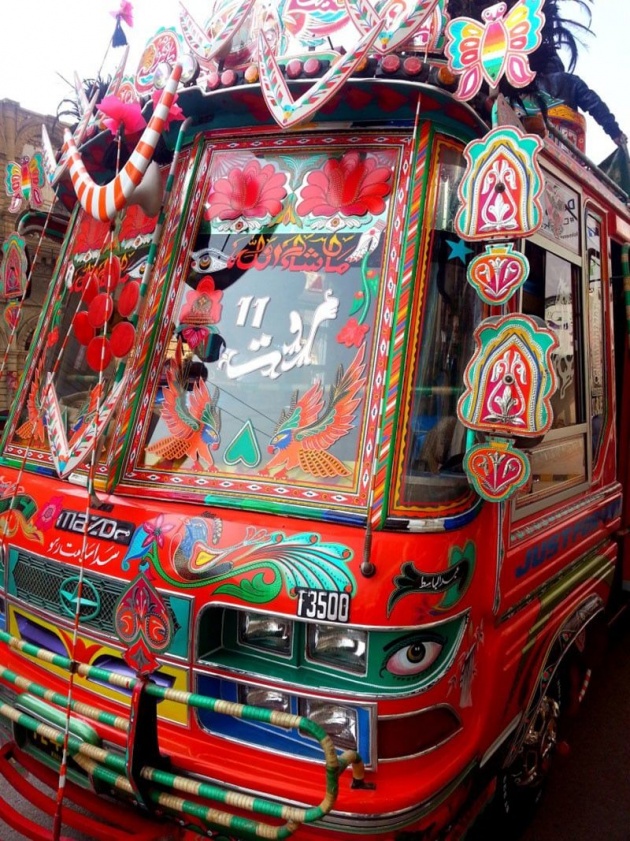City-walking in Karachi has been reduced to beaches, parks, malls and residential enclaves, walled high to segregate the insecurities of the bourgeoisie from the rest of the ‘open city’.
The argument that ‘a city is best discovered on foot’ may be lauded when we travel outside the country; within, it triggers the ultimate discussion of the naazuk surat-e-haal. As a result, the average Karachiite experiences their city with some restrictions, and its history with even more.
That is why, stumbling upon a recent initiative undertaken by Karachi-based youngsters and riddled with curiosity to walk the streets and ride atop a colourful minibus, I had to resist the urge to doubt.
Within a week, I had booked myself a seat on the Super Karachi Express, not knowing what to expect, primarily because the tour guides purposefully remain vague about the locations they cover on a given tour. They like to maintain an element of surprise. I gather it is also a clever security strategy.
The price of the tour, which includes breakfast of chai-paratha or halwa puri at a local dhaba, is equivalent to the price of a movie ticket at a luxury cinema in the city, but certainly more valuable.
Early one Sunday morning, we dismount the Super Karachi Express (SKE) to walk down Zaibunnisa Street in Saddar. The street, yawning itself awake given the hour, is the second in Karachi to be named after a woman – the other being Fatima Ali Jinnah Road.
Formerly known as Elphinstone Street and once considered to be the Piccadilly Circus of Karachi, it is named after Zaibunissa Hamidullah. Bengali by origin, in 1948, she became Pakistan’s first female English columnist and contributed to Dawn, The Mirror, and the Morning News, amongst others.
On Zaibunnisa Street stands the Mohammed Ali Building. Our guides tell us that it is owned by the government of Belgium, which refused to hand over ownership to Pakistan after independence. Because of this, the maintenance of this historic building is disputed and largely neglected.
We are driven to the Karachi Parsi Institute, formerly known as the Parsi Gymkhana, established in 1893. Here stand the statues of ‘Ed and Ned’. Ed, or Edulji Dinshaw, was a prominent businessman and philanthropist of pre-partition Karachi’s Parsi community and his son Ned, or Nadirshaw Edulji Dinshaw, continued his father’s legacy.



